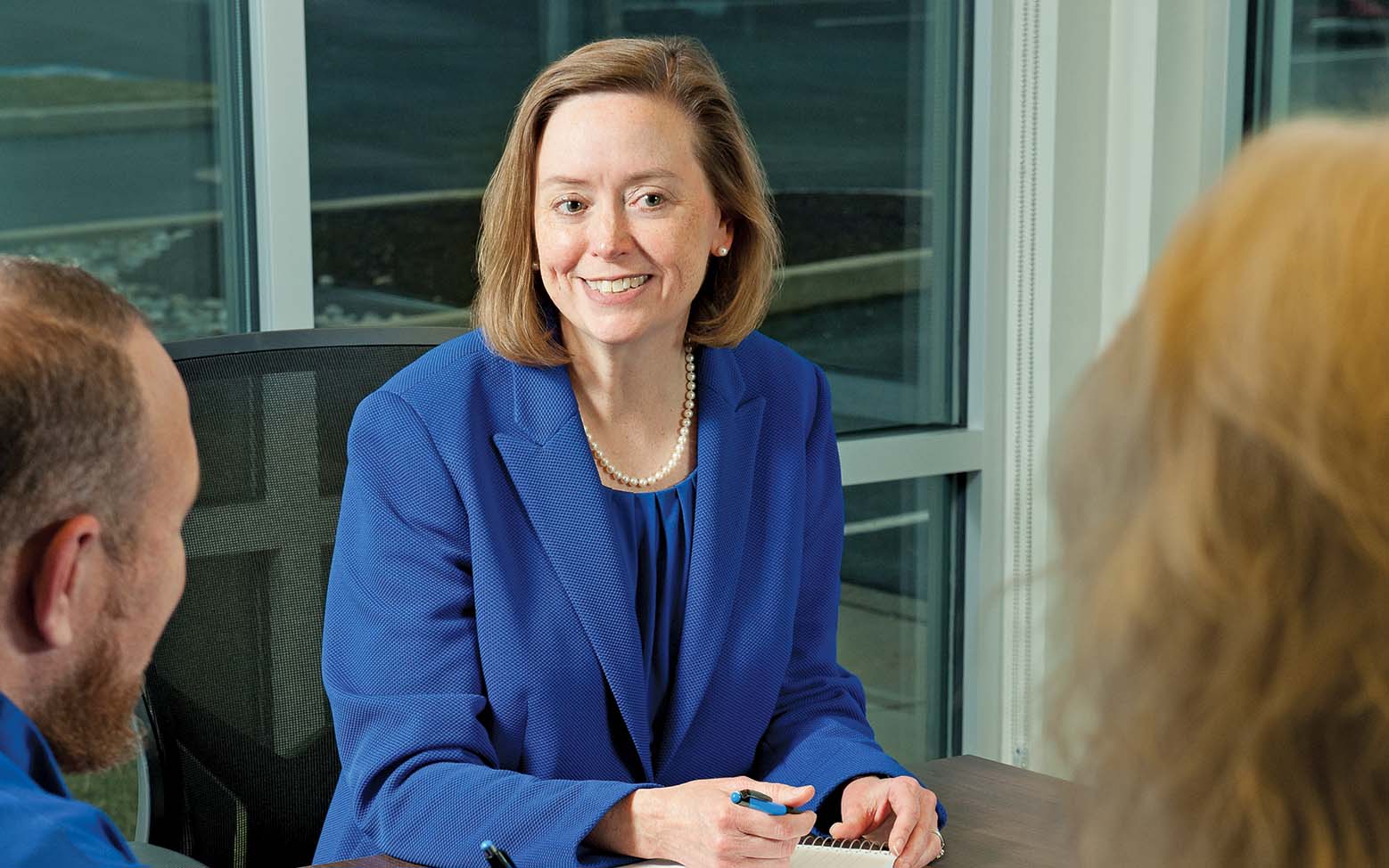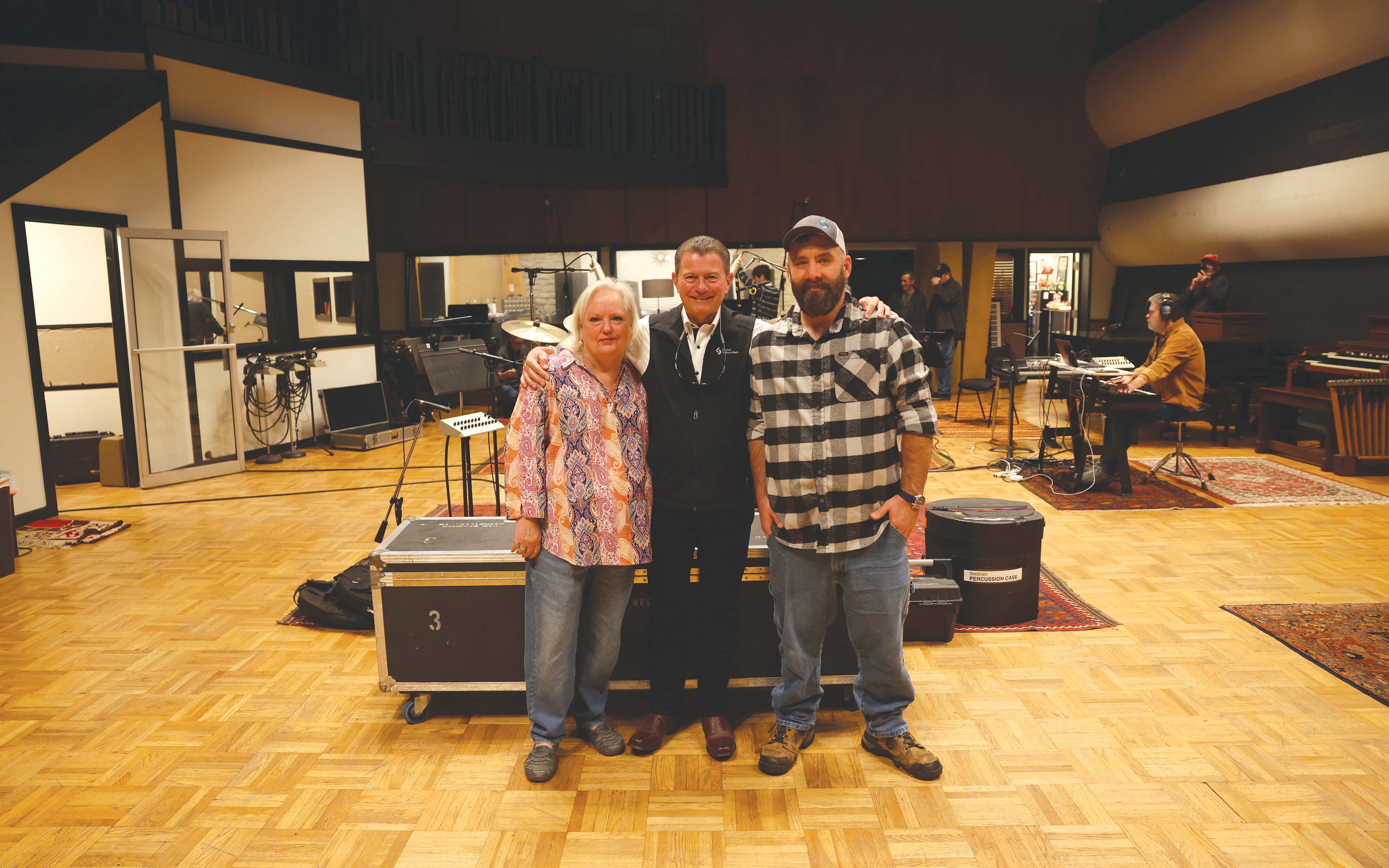Umpqua Bank and the Federal Home Loan Bank of Des Moines recently partnered to award $160,000 in grant money to 13 affordable housing nonprofits in Oregon.
Umpqua Bank Supports Affordable Housing Initiatives
September 12, 2024 / By Taylor Hugo
Umpqua Bank and the Federal Home Loan Bank of Des Moines recently partnered to award $160,000 in grant money to 13 affordable housing nonprofits in Oregon.
Umpqua Bank in Lake Oswego, Ore., has a long history of supporting unhoused populations in the communities it serves. Over the years, it’s done everything from helping underserved individuals purchase their first homes to lending with the goal of activating more affordable housing projects throughout its eight-state footprint.
When the $50 billion-asset community bank had an opportunity to partner with the Federal Home Loan Bank (FHLB) of Des Moines to award grants to nonprofits that support access to affordable housing, the partnership “was a no-brainer,” says Brenden Butler, impact officer at Umpqua Bank.
“Every state is struggling with housing, whether it’s basic shelter, affordable housing or first-time homeownership,” he says. “This [grant] is such a big opportunity to address that, and it’s going to take folks in all different sectors to do it.”
Hitting close to home
Oregon has one of the largest homeless populations in the country, with an estimated 20,142 unhoused people, according to the U.S. Department of Housing and Urban Development (HUD) 2023 Annual Homelessness Assessment Report to Congress. Of that number, 13,004—or 65%—are unsheltered. HUD defines “unsheltered” as “people whose primary nighttime location is a public or private place not designated for, or ordinarily used as, a regular sleeping accommodation for people (for example, streets, vehicles or parks)." That’s the second highest rate in the nation, surpassed only by California.
“We can go down the street and see somebody who’s houseless. We can see and hear ourselves [say] how challenging it is to pay for rent,” says Butler. “How can we not acknowledge such an incredibly important, basic need in our communities, and not acknowledge or act on an opportunity to leverage resources that we know are going to help be a part of the solution?”
In total, the Umpqua Bank Charitable Foundation was able to distribute $160,000 in grants through FHLB Des Moines’ Member Impact Fund. The fund is a matching grant program exclusive to FHLB Des Moines members, like Umpqua Bank, that provides funding to strengthen communities in targeted areas. Through the Member Impact Fund, FHLB Des Moines provided $3 for every $1 donated by Umpqua Bank.
Umpqua Bank nominated 13 nonprofits for the grant, all of which received the $3 to $1 match: 12 organizations were awarded a total of $10,000, and one got $40,000 to put toward either working capital or capacity building.
According to Butler, “This is an opportunity for more resources to get to community members that we know need it, and we have trusted relationships with these organizations.”
“Hopefully we can lead by example and spur others to get more involved in their local communities.”—Brenden Butler, Umpqua Bank
Seeing the grants in action
Central City Concern (CCC) is one of the organizations that was awarded the grant. Based in Portland, CCC aids more than 13,000 people each year as they overcome homelessness by helping them access healthcare, get treatment for addiction and substance abuse, find jobs and be placed in affordable housing units owned by CCC.
CCC used the $10,000 it received—$2,500 from Umpqua and $7,500 from FHLB Des Moines—to further its environmental justice initiatives. Marginalized groups, including low-income and Black, Indigenous and people of color (BIPOC) communities, often experience the most harmful effects of extreme weather events, food insecurity, economic instability and pollution.
Through CCC’s Resiliency Action Plan, which kicked off in March 2023, the organization has been gathering data and creating a scoring methodology to understand the threat various hazards pose to its affordable housing properties.
That was phase one. Now, in phase two, “We are working to incorporate essential health and wellness data to help identify potential vulnerabilities and sensitivities of folks living or working in our buildings,” says Rachel Maas, director, climate action for CCC.
The goal of this database work is to implement effective resilience strategies and inform future retrofit projects, such as the installation of air conditioning units, solar panels and community gardens.
Maas adds that with Umpqua Bank’s support, CCC will be better equipped to safeguard communities that are disproportionately affected. She says it helps CCC “further our mission of ending homelessness through targeted, data-driven resilience strategies.”
Inspiring others to give back
CCC is just one of the success stories that come from Umpqua Bank’s contributions. All the nonprofits chosen for the grants expressed similar enthusiastic sentiments about receiving the donation, sharing their gratitude that Umpqua Bank showed up as a partner and appreciation for the support of their missions.
“There was no reason we had to [apply for the Member Impact Fund],” Butler says. “It wouldn’t have reflected differently in the eyes of FHLB Des Moines if we did or didn’t.” He notes that Umpqua Bank was committed to donating to all the organizations it nominated, regardless of whether FHLB Des Moines matched Umpqua’s contributions.
“The hope is that it will spark others to see the power the Federal Home Loan Bank Member Impact Fund has, and to be able to continue to leverage it when those opportunities come up,” says Butler. “Hopefully we can lead by example and spur others to get more involved in their local communities.”
Subscribe now
Sign up for the Independent Banker newsletter to receive twice-monthly emails about new issues and must-read content you might have missed.
Sponsored Content
Featured Webinars
Join ICBA Community
Interested in discussing this and other topics? Network with and learn from your peers with the app designed for community bankers.
Subscribe Today
Sign up for Independent Banker eNews to receive twice-monthly emails that alert you when a new issue drops and highlight must-read content you might have missed.
News Watch Today

Join the Conversation with ICBA Community
ICBA Community is an online platform led by community bankers to foster connections, collaborations, and discussions on industry news, best practices, and regulations, while promoting networking, mentorship, and member feedback to guide future initiatives.












